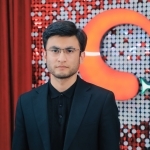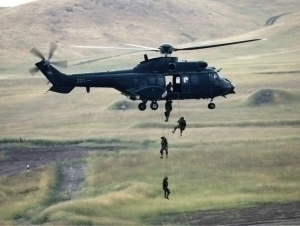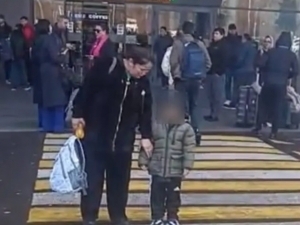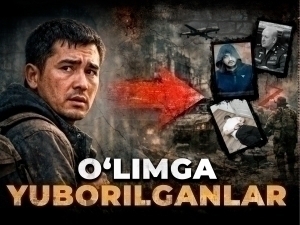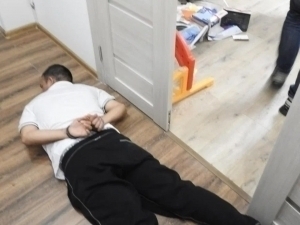Russia reacts to Kirillov’s assassination: Uzbeks under pressure, Medvedev warns NATO
Review
−
19 December 2024 11919 5 minutes
On December 17, information emerged regarding the death of Lieutenant General Igor Kirillov, the head of the Radiation, Chemical, and Biological Protection Troops of the Russian Armed Forces, along with his assistant, Ilya Polikarpov. They were killed in an explosion as they were leaving their residence in Moscow. While there has been no official confirmation of U.S. involvement in the general's death from Kyiv, certain sources suggest that such involvement was concealed.
Yesterday, a 29-year-old citizen of Uzbekistan was detained on suspicion of carrying out the murder. Reports indicate that this Uzbek national arrived in Moscow on the orders of Ukrainian special services and planted a homemade explosive device on an electric fence at the entrance of the apartment complex where General Kirillov lived.
“To monitor the military serviceman's residence, he rented a car and installed a video surveillance camera there. The footage from this camera was transmitted online to the Ukrainian security service in the city of Dnepr. After receiving a video signal of the soldier leaving the gate, the explosive device was remotely activated,” the report states.
According to the Russian Investigative Committee, the Uzbek citizen was promised a cash reward of $100,000 and deportation to a European country as a guarantee for committing the crime.
Uzbekistan immediately informed Russia
Following the incident, Russian security forces sought information from their Uzbek counterparts regarding the person suspected of the murder of Igor Kirillov. TASS reported that, upon receiving the request, the Uzbek side promptly provided details on the individual detained in Russia on suspicion of the general’s murder.
According to the shared information, the suspect had no connections with terrorist organizations in Uzbekistan and had no prior criminal record. The suspect, identified as Akhmad Kurbanov, is currently under investigation in Russia.
The Russian Federal Security Service (FSB) also released a video interview with Kurbanov. In the footage, Kurbanov confessed to being recruited by Ukrainian special services. He detailed how he rented a car and set up a video surveillance camera inside it to monitor the target. The footage was broadcast online via Wi-Fi to Ukrainian security forces in Dnipro. Kurbanov admitted to activating the explosive device remotely as soon as General Kirillov left his residence.
In response to the incident, the Embassy of Uzbekistan in Russia released a statement indicating that it was working to verify the information regarding the suspect.
"The diplomatic mission is in contact with the law enforcement agencies of the host country and is clarifying information about the person suspected of committing this incident," the statement said.
Are migrants worried again?
The revelation that an Uzbek citizen was allegedly assassinated on behalf of Ukrainian special services has sparked concern within the Uzbek migrant community. Many fear that this case could be used as a pretext for increased pressure and restrictions on Uzbek labor migrants in Russia.
These concerns are not without precedent. Earlier this year, following accusations that several Tajik nationals were involved in a terrorist attack at Crocus City Hall in Krasnogorsk, Moscow Region, there was a noticeable increase in pressure on Tajik migrants in Russia. Uzbek social media users now fear a similar pattern may emerge, with stricter oversight and potential discrimination against Uzbek migrants working in Russia.
Medvedev’s Threat to the Global Media
Predictably, many Western media outlets described Kirillov's death as a justified act of self-defense. Ukrainian authorities recently accused Kirillov of personally authorizing the use of chemical weapons 4,800 times during Russia’s invasion of Ukraine.
As expected, The Times referred to the attack on Kirillov as an “act of legitimate self-defense.” This characterization triggered a fiery response from former Russian President Dmitry Medvedev, who currently serves as Deputy Chairman of the Russian Security Council.
Medvedev issued a scathing warning to Western officials and media figures who, in his view, justified attacks on Russian military figures.
“All NATO officials who have decided to provide military assistance to Ukraine are participating in a hybrid or conventional war against Russia,” Medvedev declared. “I will not list them, as it’s not worth it. But all of them can and should be considered legitimate military targets for the Russian state.”
He continued, “Among these accomplices are the jackals of The Times, cowardly hiding behind their editorial desks. This means, be careful! After all, anything can happen in London…”
Medvedev’s statement was widely interpreted as a direct threat against Western journalists and media figures.
The threats come at a time of heightened anxiety for Central Asian migrants in Russia, with fears of increased scrutiny following Kurbanov’s arrest. Calls from Russian politicians for calm, however, aim to prevent a repeat of the mass detentions and abuses faced by Tajik migrants after the Crocus City Hall incident.
While the situation remains tense, some observers argue that Ukrainian security forces may be deliberately seeking to exploit Russia’s internal ethnic divisions. Russian lawmakers have warned that targeting migrant communities would only serve Ukraine’s interests.
As the investigation into the death of General Kirillov unfolds, one thing remains clear: the case has reignited Russia's longstanding debate on migration policy, media freedom, and the use of the death penalty.
